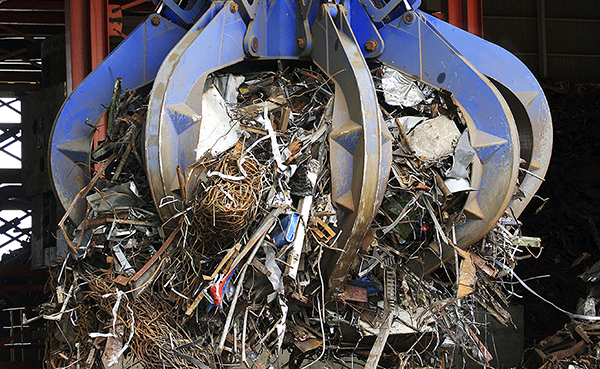The European Commission’s updated European Waste Shipment Regulation – which could affect ferrous and non-ferrous scrap trade – should be announced Nov. 17, a Commission spokesperson said Nov. 4.
However, nothing can yet be shared on its content, the spokesperson told S&P Global Platts in an email. The EU’s Waste Shipment Regulation has been in force since 2006, and has been updated various times, and has again been under review with industry collaborators since 2020.
Publication of the revised regulation will follow months of speculation on the possibility that the EC will restrict regional exports of both ferrous and non-ferrous scrap in order to secure local supplies of materials considered key in the metals industry’s decarbonization process and establishment of the circular economy, particularly in view of a recent surge in ferrous scrap export levels. Scrap-based production typically uses a fraction of the energy used in production using virgin materials.
Any blanket export scrap ban, particularly for ferrous scrap, is considered highly unlikely, due to the high volumes of ferrous scrap generated within the EU, particularly in heavy melting scrap, which wouldn’t be fully absorbed by the domestic EU market.
According to data released Nov. 4 by Brussels-based International Recycling Assn BIR, the EU’s ferrous scrap exports in the first half of the year soared to 11.24 million mt, up 49.3% year on year, maintaining the EU’s position as the world’s top steel scrap exporter despite Brexit – the UK is also a significant exporter of ferrous scrap. Market observers note some concern over what might happen in the revision to higher Fe-yield ferrous scrap grades like shredded, bonus and plate and structural, but usually EU steel mills already pay a premium over what recyclers can achieve in the export market.
Fears of trade distortions
However, any export restrictions risk distorting traditional scrap trade flows as they could push up international market prices at the same time as reducing regional prices within the EU, which might discourage regional scrap collection, industry sources have said. In recent months, prices for regional ferrous scrap exports to Turkey, the world’s biggest ferrous scrap importer, soared to record levels exceeding $500/mt on supply chain disruptions and growing demand from Turkey’s growing electric arc furnace-based steelmaking sector. Ferrous scrap demand is set to grow worldwide in the coming years as steelmakers strive to expand production via EAFs, whose production is less carbon-intensive than from blast furnaces, which use coal and iron ore as raw materials.
Market sources have nonetheless indicated that Turkey, in its role as the largest ferrous scrap importer globally, is unlikely to be affected by the current EU revision. Non-OECD countries, possibly including India and Pakistan, are more likely to be affected, sources have said.
Turkey’s overseas steel scrap purchases in the first half of the year leapt 33.2% year on year to 12.87 million mt, BIR said.
Platts assessed Turkish imports of premium heavy melting scrap 1/2 (80:20) Nov. 4 at $500/mt CFR, up $5/mt on the day.
Around 630 million mt of steel scrap is recycled worldwide every year, preventing nearly 950 million mt of CO2 emissions and making “a decisive contribution to climate protection”, BIR Ferrous Division’s Statistics Advisor Rolf Willeke was cited as saying in BIR’s Nov. 4 statement. Adding in scrap usage within the foundry sector, annual CO2 emission savings are seen to amount to over 1 billion mt.
Willeke highlighted a 47.1% year-on-year surge in China’s steel scrap consumption to as much as 137.95 million mt in the first six months of 2021. According to the BIR official, this reflects the objective announced in China’s latest Five-Year Plan to reduce CO2 emissions in crude steel production through increased steel scrap usage.
Non-ferrous
Possible curbs by the EC on regional exports of non-ferrous metal scrap could reduce international metal recycling rates, running counter to circular economy principles, according to speakers at BIR’s non-ferrous metals division forum this week. Traditional importers of scrap could go short of metal supplies and be obliged to source more primary metal to meet their requirements as a result, BIR officers said.
BIR sources indicated the EC revision of waste export is based on environmental and not trade considerations, with the aim of curb exporting scrap to countries that don’t meet the same environmental standards as EU countries.
— Diana Kinch and Viral Shah






